If you’re eyeing the best MacBook Pro models for data science and AI in 2025, I recommend looking at the latest M4 Pro and M4 Max versions for their powerful CPUs, high RAM options, and stunning Liquid Retina XDR displays. Older models with M1 Pro or M2 Max chips also perform well on demanding tasks. To find out which specific models made the top list and why, stay with me — there’s plenty more to explore.
Key Takeaways
- Latest models like M4 Pro and M4 Max offer top-tier processing power for demanding data science and AI workloads.
- High-resolution Liquid Retina XDR displays enhance data visualization and detailed analysis.
- Configurable RAM (up to 64GB) and SSD storage (up to 8TB) support large datasets and multitasking.
- Newer models provide extended battery life (up to 24 hours) and robust build quality for professional use.
- Premium pricing and limited upgradability make the latest MacBook Pros ideal for serious AI and data science professionals.
Apple 2024 MacBook Pro Laptop with M4 Pro
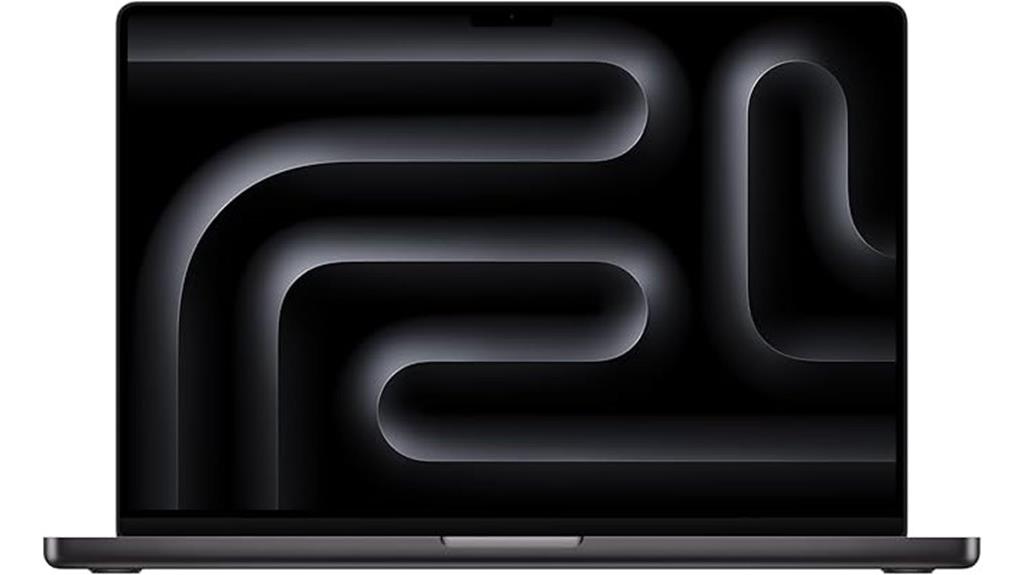
Are you looking for a powerful laptop that can handle demanding data science and AI workloads? The 2024 Apple MacBook Pro with M4 Pro is a top-tier choice. It features a 14-core CPU, 20-core GPU, and up to 48GB of RAM, making it perfect for intensive tasks. The stunning 16.2-inch Liquid Retina XDR display with ProMotion offers vibrant visuals and smooth performance. Its sleek, durable space black design resists fingerprints and dust. Plus, with multiple ports—including Thunderbolt 5, HDMI, and SDXC—it supports various external devices and high-resolution displays. Overall, it’s a premium machine built for demanding professional workflows.
Best For: professionals and creatives who require high-performance computing for demanding data science, AI workloads, video editing, and 3D rendering.
Pros:
- Exceptional processing power with M4 Pro chip, up to 48GB RAM, and high-end GPU options
- Stunning 16.2-inch Liquid Retina XDR display with ProMotion for smooth visuals and vibrant colors
- Robust port selection including Thunderbolt 5, HDMI, and SDXC for versatile connectivity
Cons:
- Heavier and more expensive than many ultraportable laptops
- Premium price point may be a barrier for some users
- Limited upgradeability due to integrated design and high-performance hardware
Apple 2024 MacBook Pro Laptop with M4 Pro
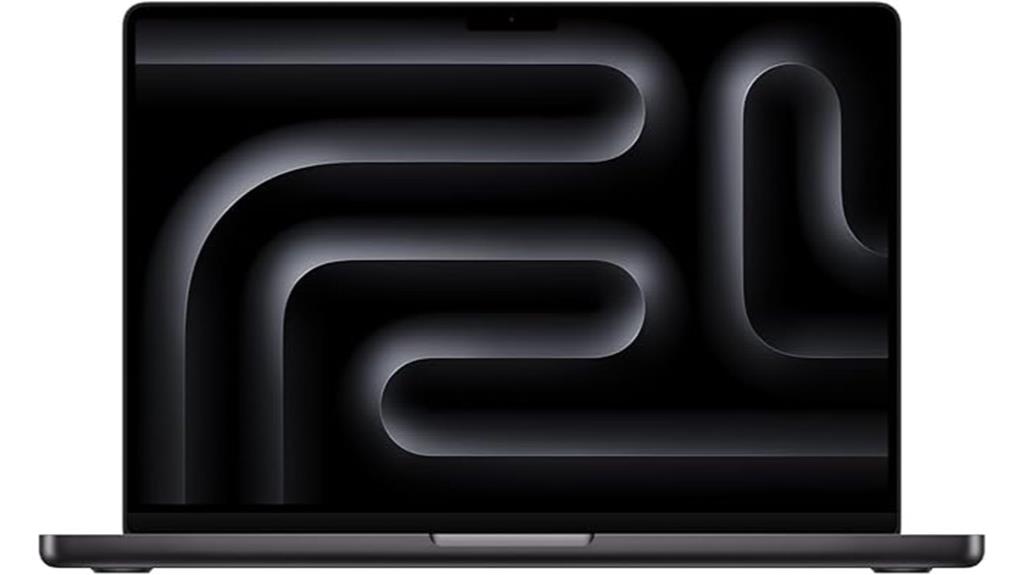
The Apple 2024 MacBook Pro with M4 Pro is an ideal choice for data scientists and AI professionals who demand top-tier performance. Its M4 Pro chip, with a 12-core CPU and 16-core GPU, handles intensive tasks like coding, data analysis, and complex workflows effortlessly. The 14.2-inch Liquid Retina XDR display delivers vibrant visuals with deep blacks and stunning clarity, perfect for creative work. Designed for all-day use, it offers excellent battery life without sacrificing speed. Seamlessly integrated into the Apple ecosystem, it supports smooth workflows with other Apple devices and popular apps, making it a powerful, reliable tool for demanding data science and AI projects.
Best For: data scientists and AI professionals seeking high-performance, reliable computing with seamless integration into the Apple ecosystem.
Pros:
- Exceptional processing power with M4 Pro chip, ideal for intensive data analysis and coding tasks.
- Stunning 14.2-inch Liquid Retina XDR display delivers vibrant visuals and deep blacks, perfect for creative work.
- Long battery life ensures all-day performance without compromising speed or functionality.
Cons:
- Premium price point may be a barrier for some users.
- Limited ports may require additional adapters for certain workflows.
- Heavy emphasis on Apple ecosystem integration might limit flexibility with non-Apple devices.
Apple 2021 MacBook Pro 16-inch with M1 Pro Chip (Renewed)
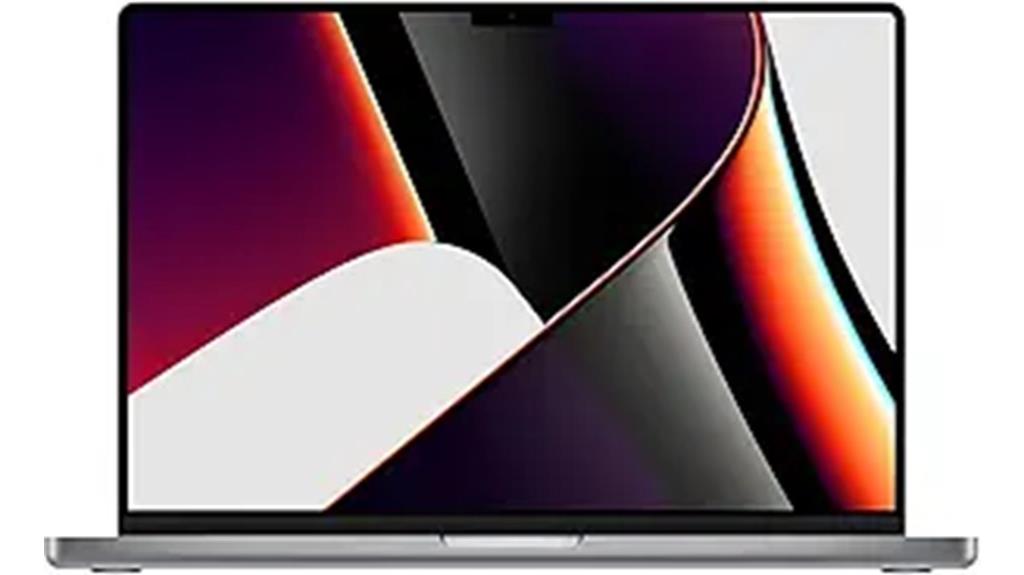
For data scientists and AI professionals seeking a reliable, high-performance machine, the Apple 2021 MacBook Pro 16-inch with M1 Pro chip (Renewed) stands out as a top choice. It features a 16-inch Retina display with a stunning 3456 x 2234 resolution, ensuring sharp visuals. Powered by a 10-core M1 Pro processor and up to a 32-core GPU, it delivers exceptional speed for intensive tasks. With 16GB of RAM and a 1TB SSD, it handles large datasets effortlessly. Its impressive battery life of up to 17 hours makes it perfect for on-the-go work. Despite being renewed, it maintains a solid reputation, rated 4.1 stars from 764 reviews.
Best For: data scientists and AI professionals seeking a high-performance, reliable machine for intensive computing tasks.
Pros:
- Powerful M1 Pro chip with up to 10 cores and a 32-core GPU ensures fast processing and graphics performance.
- Large 16-inch Retina display with high resolution provides sharp, clear visuals ideal for detailed work.
- Long battery life of up to 17 hours makes it suitable for portable use and on-the-go productivity.
Cons:
- Being a renewed product, it may have some wear or cosmetic imperfections despite functionality.
- The price can vary and may be higher compared to non-renewed or less powerful alternatives.
- Limited upgrade options post-purchase, as the hardware is integrated and non-upgradable.
Apple MacBook Pro 13 Laptop with Intel Core i5, 8GB RAM, 256GB SSD, Space Gray
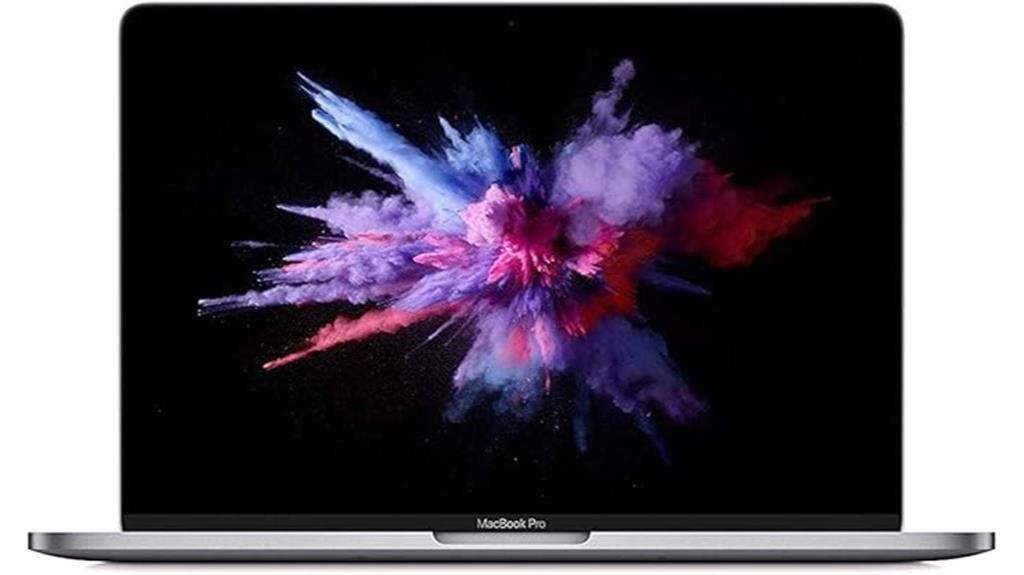
Among the top choices for budget-conscious data scientists and AI enthusiasts in 2025, the Apple MacBook Pro 13-inch with Intel Core i5 stands out for its portable design and solid performance. It features a sharp Retina display with True Tone technology, a quad-core 8th-gen Intel processor, 8GB RAM, and a 256GB SSD, offering reliable everyday productivity. Weighing just 2.58 pounds, it’s easy to carry around, with up to 10 hours of battery life. While some refurbished units may have cosmetic flaws or battery issues, most users find it a good value for light data science tasks, media, and general use.
Best For: budget-conscious data scientists and AI enthusiasts seeking a portable, reliable laptop for light data tasks and media consumption.
Pros:
- Compact, lightweight design weighing only 2.58 pounds for easy portability
- Sharp Retina display with True Tone technology enhances visual clarity
- Solid performance with an 8th-gen quad-core Intel Core i5 and 8GB RAM suitable for everyday productivity
Cons:
- Potential cosmetic flaws or minor damages in refurbished units
- Battery life may degrade over time, with some units experiencing reduced capacity or failure
- Limited upgrade options and possible warranty restrictions on refurbished models
Apple MacBook Pro Late 2021 with M1 Pro Chip (14-inch, 16GB RAM, 1TB SSD) Space Gray (Renewed)

Looking for a powerful, yet affordable machine to handle data science and AI workloads? The Apple MacBook Pro Late 2021 with M1 Pro chip is a great option. This 14-inch model comes in Space Gray, renewed but professionally inspected, with no visible cosmetic flaws. It features a 10-core M1 Pro processor, 16GB RAM, and a 1TB SSD, providing high performance and ample storage. The 14.2-inch display offers sharp resolution, and the battery lasts around 17 hours. Perfect for demanding tasks, it combines portability with robust capabilities, making it a smart choice for professionals working on complex data projects.
Best For: professionals and students who need a powerful, portable laptop capable of handling data science, AI workloads, and demanding multitasking with high performance.
Pros:
- High-performance M1 Pro chip with 10 cores for demanding tasks
- Ample 16GB RAM and 1TB SSD for storage and multitasking
- Long battery life of around 17 hours ideal for portable use
Cons:
- Renewed product may come with non-original accessories and packaging
- No optical drive included, limiting media options
- Price can vary, and it’s not Apple certified, which might affect perceived warranty or support
Apple 2021 MacBook Pro with M1 Max Chip, 16-inch, 32GB RAM, 1TB SSD, Space Gray
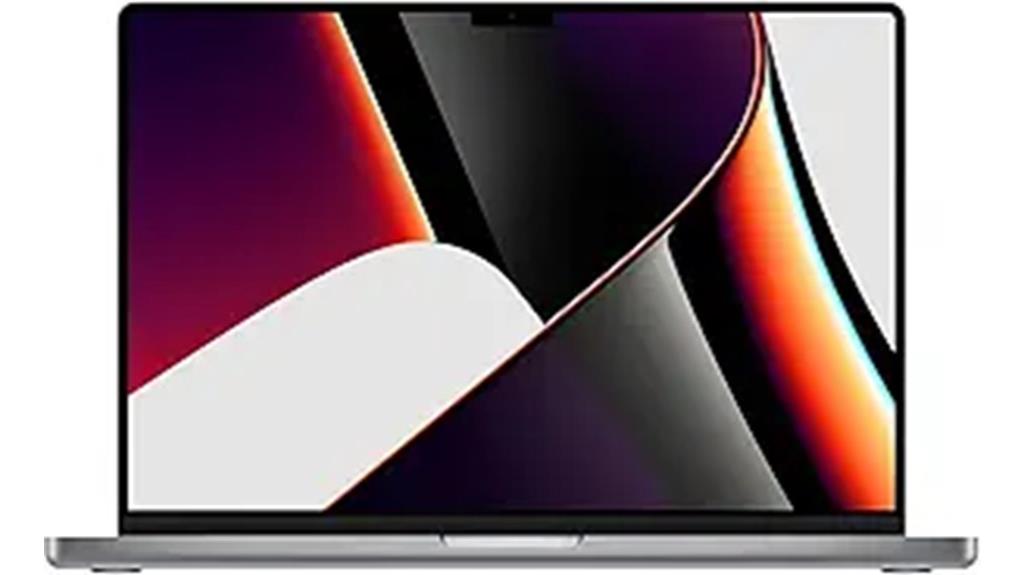
If you’re serious about data science and AI work, the 2021 MacBook Pro with M1 Max chip stands out with its powerful processing capabilities. Its up to 10-core CPU delivers 3.7 times faster performance, boosting complex workflows, while the 16-core Neural Engine makes machine learning tasks up to 11 times quicker. With 32GB of RAM and a 1TB SSD, multitasking and large datasets are no problem. The 16-inch Retina display offers stunning visuals, and the Space Gray finish gives it a sleek look. Plus, with up to 17 hours of battery life, you can work long hours without interruptions.
Best For: professionals in data science, AI, and demanding creative workflows seeking top-tier performance and large storage capacity.
Pros:
- Exceptional CPU and GPU performance with up to 10-core CPU and powerful M1 Max chip.
- Large 32GB RAM and 1TB SSD support multitasking and large datasets efficiently.
- Stunning 16-inch Retina display with sleek Space Gray finish and long-lasting battery life.
Cons:
- Premium price point may be a barrier for some users.
- Heavier and bulkier compared to smaller laptops, affecting portability.
- Limited upgradeability post-purchase due to integrated components.
Apple MacBook Pro with M3 Pro Chip, 14-inch, 18GB RAM, 1TB SSD (Renewed)
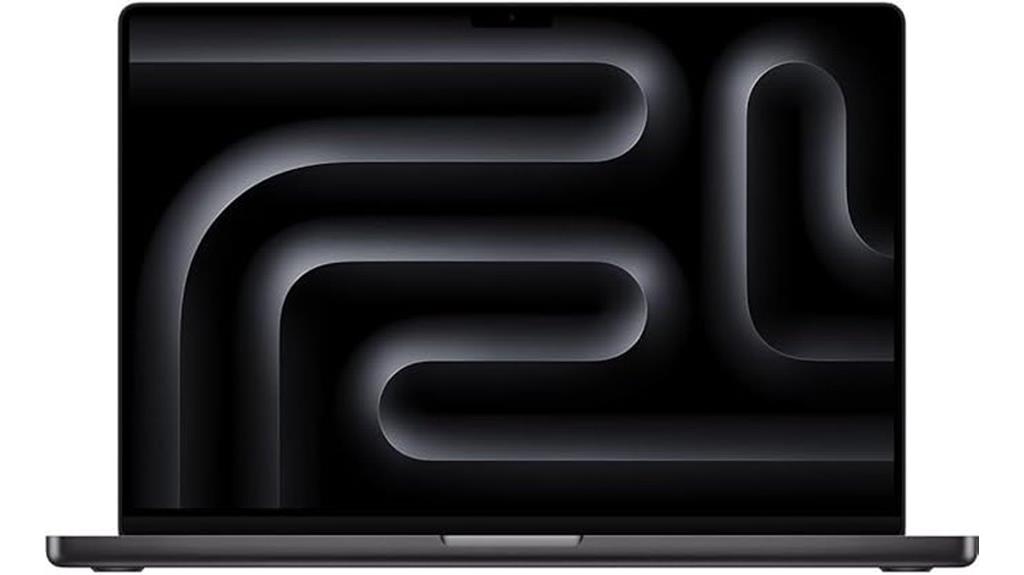
The Apple MacBook Pro with M3 Pro Chip, 14-inch, 18GB RAM, and 1TB SSD (Renewed) stands out as an excellent choice for data scientists and AI developers seeking powerful performance and reliability. Its 14.2-inch Liquid Retina XDR display offers stunning visuals with over 1000 nits HDR brightness, ideal for detailed data visualization. Powered by the M3 Pro chip with up to 12-core CPU and 18-core GPU, it handles demanding workflows effortlessly. Plus, with 18GB RAM and 1TB SSD, it guarantees smooth multitasking and fast data access. The device’s long-lasting battery, broad software compatibility, and sleek design make it a versatile tool for AI and data science tasks.
Best For: data scientists, AI developers, and creative professionals seeking a powerful, reliable, and portable MacBook with excellent display quality and long battery life.
Pros:
- High-performance M3 Pro chip with up to 12-core CPU and 18-core GPU for demanding workflows
- Stunning 14.2-inch Liquid Retina XDR display with over 1000 nits HDR brightness for detailed visuals
- Long-lasting battery life up to 18 hours, supporting all-day use and multitasking
Cons:
- Renewed product may have limited warranty or cosmetic imperfections compared to new units
- Limited to macOS ecosystem, which might restrict software compatibility for some users
- Slightly heavier at 3.5 pounds, which could be less portable compared to ultralight laptops
Apple 2024 MacBook Pro Laptop with M4 Pro
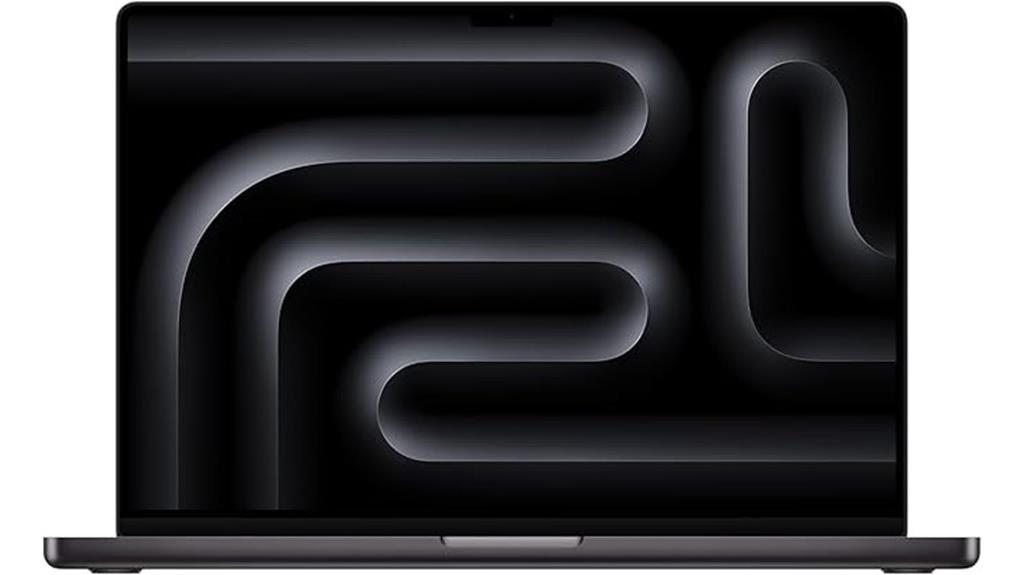
The Apple 2024 MacBook Pro with M4 Pro is a powerhouse designed for demanding data science and AI workloads. It features a stunning 16.2-inch Liquid Retina XDR display with exceptional brightness and contrast, perfect for visualizing complex data. Powered by the M4 Pro chip, it offers a 14-core CPU and 20-core GPU, handling intensive tasks like code compilation and 3D rendering with ease. With 48GB of unified memory and 1TB SSD, it ensures fast data access and multitasking. Its seamless integration with other Apple devices, up to 24 hours of battery life, and robust privacy protections make it an ideal choice for professional data scientists and AI developers.
Best For: data scientists, AI developers, and creative professionals who require powerful performance, high-quality visuals, and seamless integration with Apple ecosystem.
Pros:
- Exceptional processing power with M4 Pro chip, ideal for demanding workloads like AI and data analysis.
- Stunning 16.2-inch Liquid Retina XDR display with high brightness and contrast for accurate visualization.
- Up to 24 hours of battery life, supporting long work sessions without needing to recharge.
Cons:
- High price point may be a barrier for budget-conscious users.
- Heavy weight (8.29 pounds) and large dimensions may reduce portability.
- Limited upgradeability, as the device is designed for integrated components and fixed specifications.
Apple MacBook Pro 16-inch with M1 Pro Chip
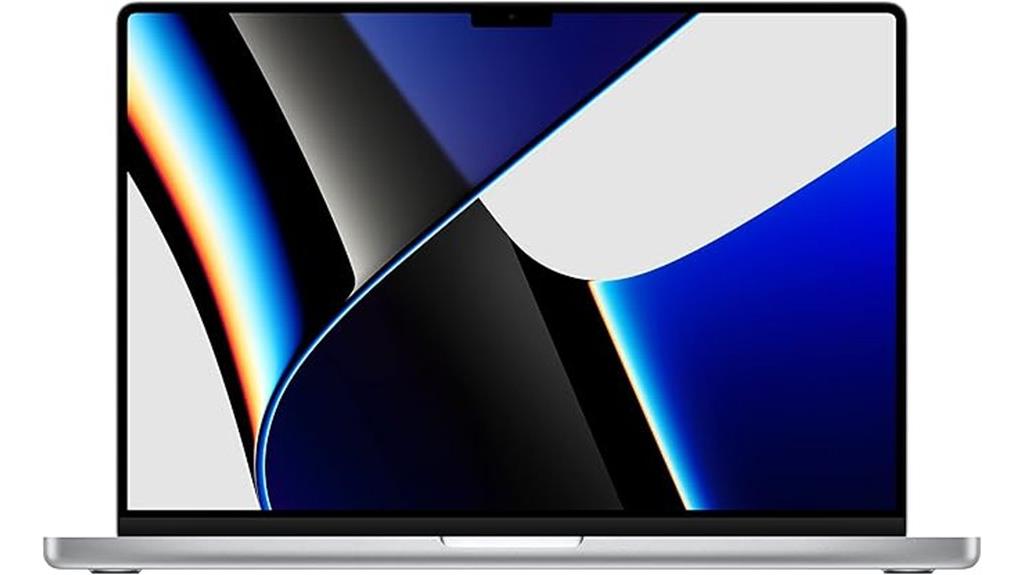
For data scientists and AI developers seeking powerful performance in a portable package, the 2021 Apple MacBook Pro 16-inch with M1 Pro chip stands out. It features a 10-core CPU and a 16-core GPU, delivering double the processing power and four times the graphics performance of previous models. With up to 64GB of unified memory and 8TB SSD storage, multitasking and data handling are seamless. Its impressive battery life of up to 21 hours makes it ideal for long work sessions. Designed for high performance and durability, this MacBook Pro is perfect for intensive data science and AI tasks on the go.
Best For: Data scientists and AI developers who need a powerful, portable laptop with high-performance processing and graphics capabilities.
Pros:
- Exceptional processing power with a 10-core CPU and 16-core GPU for demanding tasks
- Large memory capacity up to 64GB for efficient multitasking and data handling
- Long battery life of up to 21 hours suitable for extended work sessions
Cons:
- Higher price point may be a barrier for some users
- Limited upgradeability due to integrated components
- Heavier than some comparable ultrabooks, which may affect portability
2023 Apple MacBook Pro with M2 Pro Chip (14-inch, 16GB RAM, 8TB SSD) Space Gray (Renewed)

If you’re tackling data science or AI projects that demand powerful processing and ample storage, the Apple MacBook Pro with M2 Pro Chip (14-inch, 16GB RAM, 8TB SSD) is an excellent choice. It features a 14-inch display with sharp visuals, a 10-core CPU, 16-core GPU, and 16GB of unified memory for seamless multitasking. The 8TB SSD provides massive storage for large datasets and media files. Weighing just 9 pounds and offering up to 18 hours of battery life, this renewed model balances portability with performance. Its extensive port selection and reliable connectivity make it ideal for professional workflows on the go.
Best For: creative professionals, data scientists, and AI developers needing powerful processing, extensive storage, and portable performance for demanding workflows.
Pros:
- High-performance M2 Pro chip with 10-core CPU and 16-core GPU for demanding tasks
- Large 8TB SSD storage ideal for big datasets and media files
- Long-lasting battery life of up to 18 hours for all-day productivity
Cons:
- Heavier weight at 9 pounds may impact portability for some users
- Premium price point due to high-end specifications and renewed status
- Limited upgradeability post-purchase, especially for storage and RAM
2023 Apple MacBook Pro with M3 Max Chip (16.2-inch, 36GB RAM, 1TB SSD) Silver
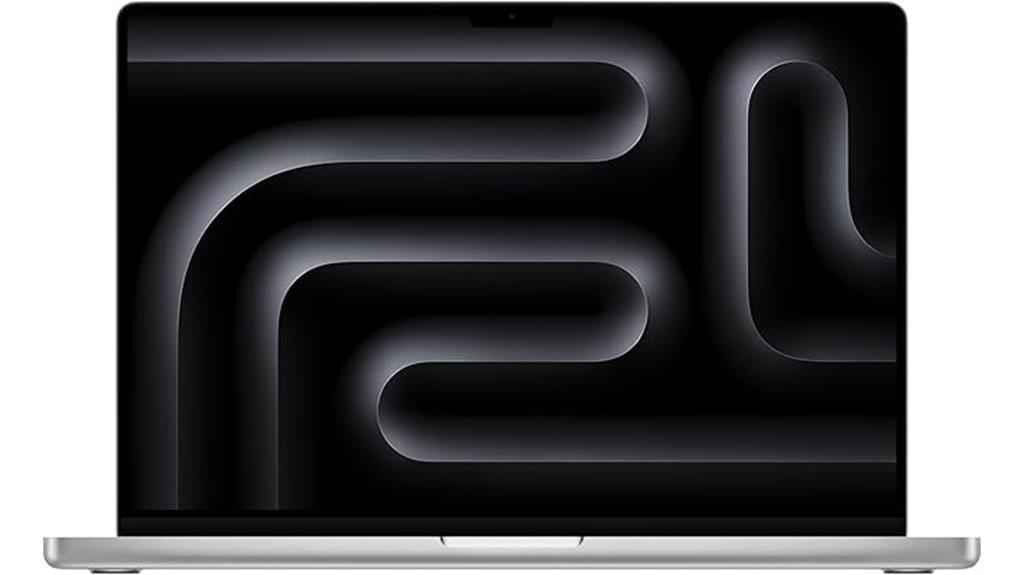
With its powerful M3 Max chip and 36GB of RAM, the 16.2-inch Apple MacBook Pro in Silver stands out as an ideal choice for data scientists and AI professionals who need top-tier performance. Its 14-core processor, combined with a 30-core GPU and Liquid Retina XDR display, ensures smooth handling of large datasets and complex models. The 1TB SSD offers fast storage, while the macOS Sonoma provides a seamless user experience. Weighing only 4.7 pounds, it’s portable without sacrificing power. Whether running intensive computations or multitasking, this renewed premium device delivers exceptional performance, making it a standout option in 2025’s MacBook lineup.
Best For: data scientists and AI professionals requiring high-performance computing, large datasets handling, and multitasking capabilities in a portable and reliable device.
Pros:
- Exceptional processing power with the M3 Max 14-core chip and 36GB RAM for demanding tasks
- Stunning 16.2-inch Liquid Retina XDR display for accurate visuals and detailed work
- Lightweight design at 4.7 pounds, combining portability with high performance
Cons:
- Premium renewed condition may still carry some uncertainties or limited warranty
- Limited port options with only USB 2.0 and 3.0 ports, possibly requiring adapters
- Higher price point due to advanced hardware and premium features
2023 Apple MacBook Pro with M3 Max Chip (16.2-inch, 36GB RAM, 1TB SSD) Silver
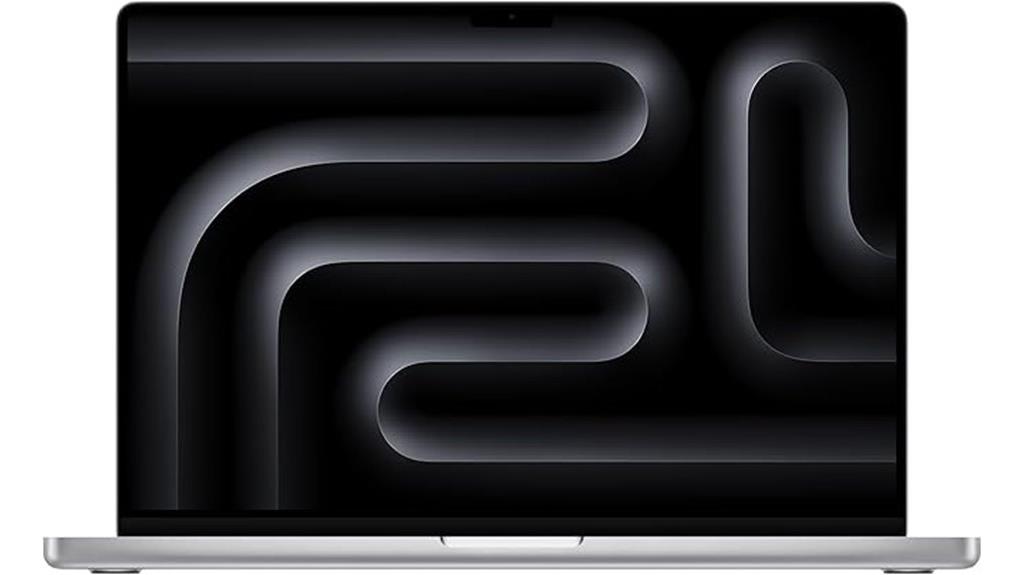
The Apple MacBook Pro with M3 Max chip stands out as an excellent choice for data scientists and AI researchers who need powerful processing and graphics capabilities in a portable package. Featuring a 14-core CPU, 30-core GPU, and 36GB of unified RAM, it handles demanding tasks with ease. The 16.2-inch Liquid Retina XDR display provides stunning visuals, while the 1TB SSD ensures fast data access. Connectivity options like Thunderbolt 4, HDMI, SDXC slot, and Wi-Fi 6E keep you connected effortlessly. With macOS, FaceTime HD camera, and Touch ID, this model combines performance, security, and user experience seamlessly.
Best For: data scientists and AI researchers seeking a powerful, portable laptop with top-tier processing, graphics, and memory capabilities.
Pros:
- High-performance 14-core CPU and 30-core GPU handle demanding workloads efficiently.
- Large 36GB unified RAM ensures smooth multitasking and data processing.
- Stunning 16.2-inch Liquid Retina XDR display delivers exceptional visuals.
Cons:
- Premium price point may be a barrier for some users.
- Limited upgrade options due to integrated components.
- Shorter battery life compared to less powerful laptops, depending on workload.
Apple 2017 MacBook Pro with 3.1GHz Intel Core i7, 15-inch, 16GB RAM, 1TB Storage

For data scientists and AI enthusiasts seeking a reliable, budget-friendly option, the 2017 MacBook Pro with a 3.1GHz quad-core Intel Core i7 and 16GB of RAM stands out. It features a 15-inch Retina display, a 1TB SSD for ample storage, and AMD Radeon Pro 560 graphics, making it capable of handling data processing tasks. Although it’s a few years old, it’s fully tested and functional, offering solid performance for moderate workloads. Its lightweight design and macOS stability make it a practical choice for those needing a dependable machine without breaking the bank.
Best For: data scientists and AI enthusiasts seeking a reliable, budget-friendly laptop capable of handling data processing and moderate workloads.
Pros:
- Powerful 3.1GHz quad-core Intel Core i7 processor with Turbo Boost up to 3.9GHz for robust performance
- 16GB of RAM and 1TB SSD provide ample memory and storage for data tasks and multitasking
- Retina display with high resolution and brightness offers excellent visual clarity for detailed work
Cons:
- Limited to one USB 2.0 port, which may require adapters for modern peripherals
- May contain light scratches or wear due to being a renewed product
- Slightly older model, which might lack some newer features or hardware advancements
2023 Apple MacBook Pro with M2 Max Chip (16.2-inch, 32GB, 1TB SSD Storage)

If you’re serious about data science or AI work, this 2023 Apple MacBook Pro with the M2 Max chip stands out as a top choice thanks to its powerful performance and stunning 16.2-inch display. The laptop features a sleek Space Gray aluminum housing and weighs just 4.75 pounds, making it portable yet robust. Its 3456 x 2234 pixel resolution delivers vibrant visuals, perfect for detailed data visualization. Equipped with 32GB of unified memory and 1TB SSD storage, it handles intensive tasks efficiently. With advanced ports, up to 22 hours of battery life, and seamless integration into the Apple ecosystem, this MacBook Pro is built for demanding data science and AI workflows.
Best For: professionals and enthusiasts in data science, AI development, and creative workflows seeking high performance, vibrant visuals, and seamless Apple ecosystem integration.
Pros:
- Powerful M2 Max chip with 12 CPU cores and up to 38 GPU cores for demanding tasks
- Stunning 16.2-inch Retina display with vibrant 3456 x 2234 resolution ideal for detailed visualizations
- Long battery life of up to 22 hours supports extended work sessions without charging
Cons:
- Premium price point may be a barrier for budget-conscious users
- Heavier and larger than ultraportable laptops, potentially less convenient for travel
- Limited to macOS environment, which may not suit users preferring Windows or Linux platforms
Apple 2024 MacBook Pro Laptop with M4 Max
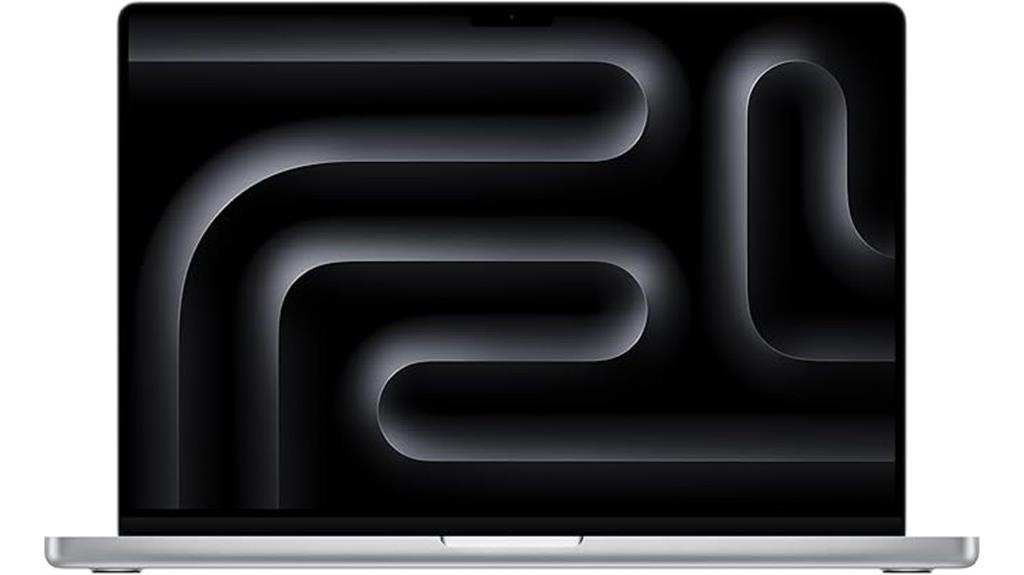
Powered by the M4 Max chip, the 2024 Apple MacBook Pro Laptop is a powerhouse designed for professionals tackling data science and AI projects. It features a 16-core CPU, 40-core GPU, and 64GB of unified memory, making it capable of handling complex tasks like rendering 3D content or compiling vast codebases. The 16.2-inch Liquid Retina XDR display offers stunning visuals with 1600 nits peak brightness and high contrast, perfect for creative work. With up to 24 hours of battery life and seamless integration within the Apple ecosystem, this laptop delivers professional performance and efficiency for demanding workloads.
Best For: professionals in data science, AI development, and creative industries seeking high-performance, portable computing with advanced visuals and seamless ecosystem integration.
Pros:
- Exceptional processing power with M4 Max chip, 16-core CPU, and 40-core GPU for demanding tasks
- Stunning 16.2-inch Liquid Retina XDR display with high brightness and contrast for accurate visuals
- Long-lasting battery life of up to 24 hours, supporting all-day professional use
Cons:
- Hefty weight of 8.29 pounds may impact portability for some users
- Premium price point could be a barrier for budget-conscious buyers
- Limited to Apple ecosystem, reducing flexibility for users with non-Apple devices
Factors to Consider When Choosing a MacBook Pro for Data Science and AI

When selecting a MacBook Pro for data science and AI, I focus on processor power and cores to handle intensive tasks efficiently. I also consider memory capacity, storage options, and display quality to guarantee smooth workflows and clear data visualization. Finally, I check port options and connectivity to support various devices and data transfer needs.
Processor Power and Cores
The number of CPU cores in a MacBook Pro plays a crucial role in handling data science and AI workloads efficiently. A higher core count, like 12 or more, allows for faster processing of large datasets and complex computations. Multi-core processors boost parallel processing, reducing training times for machine learning models and speeding up data analysis workflows. The presence of high-performance cores alongside efficiency cores helps optimize power consumption during intensive tasks, guaranteeing the laptop remains responsive without draining batteries quickly. Advanced architectures, such as M4 Max or M3 Max, with numerous cores and clock speeds of 3.4 GHz or higher, markedly improve AI model training and inference speeds. This combination of cores and high throughput ensures smooth handling of resource-intensive applications like neural networks and real-time analytics.
Memory Capacity Needs
Choosing the right amount of RAM is essential for maximizing your MacBook Pro’s performance in data science and AI tasks. For most users, 16GB of RAM is a solid baseline to handle large datasets and complex computations efficiently. However, if you’re working with extensive neural networks or high-resolution data, 32GB or more can prevent bottlenecks and improve workflow speed. Higher memory capacity also enhances multitasking, allowing you to run multiple analysis tools and frameworks simultaneously without slowdown. For advanced machine learning, large-scale simulations, or training deep learning models, 48GB or 64GB of RAM is ideal. Ultimately, more RAM means better in-memory data processing, reducing reliance on slower disk storage and speeding up your entire workflow.
Display and Graphics Quality
High-quality display and graphics capabilities profoundly influence your efficiency in data science and AI work on a MacBook Pro. A high-resolution Retina or Liquid Retina XDR display with true color accuracy ensures precise data visualization and analysis, which is essential for interpreting complex datasets. Brightness levels of 1000 nits or more, especially in HDR content, improve visibility in various lighting conditions, making detailed work easier. A high contrast ratio, such as 1,000,000:1, delivers deep blacks and vibrant colors, indispensable for imaging and visual data tasks. Support for ProMotion adaptive refresh rates up to 120Hz allows smooth scrolling and real-time interaction with visualizations. Additionally, integrated graphics with dedicated cores or high GPU counts greatly enhance rendering and processing of graphically intensive AI and data science models.
Storage and Data Access
Having ample storage space and quick data access are vital when working with large datasets and complex AI models on a MacBook Pro. I recommend at least 512GB of storage, with 1TB or 2TB SSDs being ideal for extensive datasets and multiple project files. Fast data access is essential, so look for models with PCIe NVMe SSDs, which considerably reduce file loading and transfer times. This boost in speed enhances productivity during training, testing, and deploying AI models. Additionally, multiple high-speed ports like Thunderbolt 4 and SDXC ensure quick data transfers from external drives and peripherals. Prioritizing ample storage and rapid data access helps maintain a seamless workflow, preventing bottlenecks in data-intensive tasks vital for data science and AI work on a MacBook Pro.
Port Selection and Connectivity
Since data science and AI tasks often require transferring large files and connecting multiple peripherals, the port selection on a MacBook Pro plays a critical role in your workflow. Look for models with multiple Thunderbolt 4 or Thunderbolt 5 ports, as these support high-speed data transfer essential for handling large datasets and training AI models efficiently. Check if the laptop includes additional connectivity options like HDMI and SDXC card slots, which make transferring data from cameras and external devices straightforward. A high-impedance headphone jack is also valuable if you need audio monitoring during analysis or testing. Finally, consider ports that support external displays up to 8K over HDMI or Thunderbolt, enabling visualization of complex data models seamlessly. Robust port options ensure your setup remains flexible and efficient.
Battery Endurance
When selecting a MacBook Pro for data science and AI work, battery endurance becomes a key consideration. Long-lasting batteries allow me to run intensive computations and training sessions without frequent recharges, boosting productivity. Devices supporting up to 24 hours of video playback offer extended use, ideal for lengthy analysis tasks. Apple’s Silicon chips enable efficient power management, delivering high performance while conserving energy during demanding workloads. A robust battery minimizes the need for external power sources, making it perfect for remote work or travel. However, I also pay attention to battery health over time, since degraded capacity reduces effective working hours. Choosing a MacBook with strong battery endurance ensures I stay productive and flexible, whether working at my desk or on the move.
Frequently Asked Questions
How Does Battery Life Impact Long AI Data Processing Sessions?
Battery life substantially impacts long AI data processing sessions because it determines how long I can work without interruptions. When the battery drains quickly, I have to pause often to recharge, which slows down progress and can be frustrating. A longer-lasting battery allows me to run intensive tasks seamlessly, boosting productivity and ensuring I can complete large data sets or complex computations without constantly worrying about finding a power source.
Are Refurbished Macbooks Suitable for Intensive AI Workloads?
Refurbished MacBooks can be suitable for intensive AI workloads if they’re in good condition and have recent hardware specs. I’ve used refurbished models that perform well for data processing, but I always check their battery health and storage. Keep in mind, I prefer newer models with powerful processors and ample RAM for demanding tasks. So, if you’re careful, a refurbished MacBook can definitely handle serious AI projects.
What Software Compatibility Issues Exist With Newer M-Series Chips?
The software compatibility issues with newer M-series chips are surprisingly manageable, but some older or niche programs might struggle. I’ve seen a few apps that need updates or run through Rosetta 2, which can slow things down. Most mainstream data science and AI tools now support M-series chips seamlessly, but it’s wise to double-check specific software requirements. Overall, the shift feels like a smooth ride with just a few bumps.
How Does GPU Performance Influence AI Model Training Speeds?
GPU performance directly impacts AI model training speeds because it handles the heavy lifting of computations. A powerful GPU accelerates data processing, reduces training time, and improves efficiency. When I work on AI projects, I notice that better GPU performance means faster iterations and quicker results. So, investing in a MacBook with a strong GPU is essential for smooth, efficient AI model development, especially for complex tasks.
Can Older Macbook Pro Models Be Upgraded for Better AI Performance?
Older MacBook Pros are like vintage cars—charming but limited by their original design. Unfortunately, you can’t upgrade their internal GPU or CPU for better AI performance. I’d recommend investing in a newer model with a more powerful GPU and faster processors. Think of it as trading in your classic for a turbocharged race car—much better suited for the demanding speeds of AI and data science tasks.
Conclusion
If you want to conquer data science and AI in 2025, these MacBook Pros are your ultimate weapons—powerful, lightning-fast, and unstoppable! Whether it’s the blazing M4 Max or the versatile M1 Pro, these machines will make your competitors tremble in awe. Don’t settle for less—grab one of these giants and watch your projects soar beyond the limits of imagination. The future belongs to the bold, so choose wisely and dominate!










